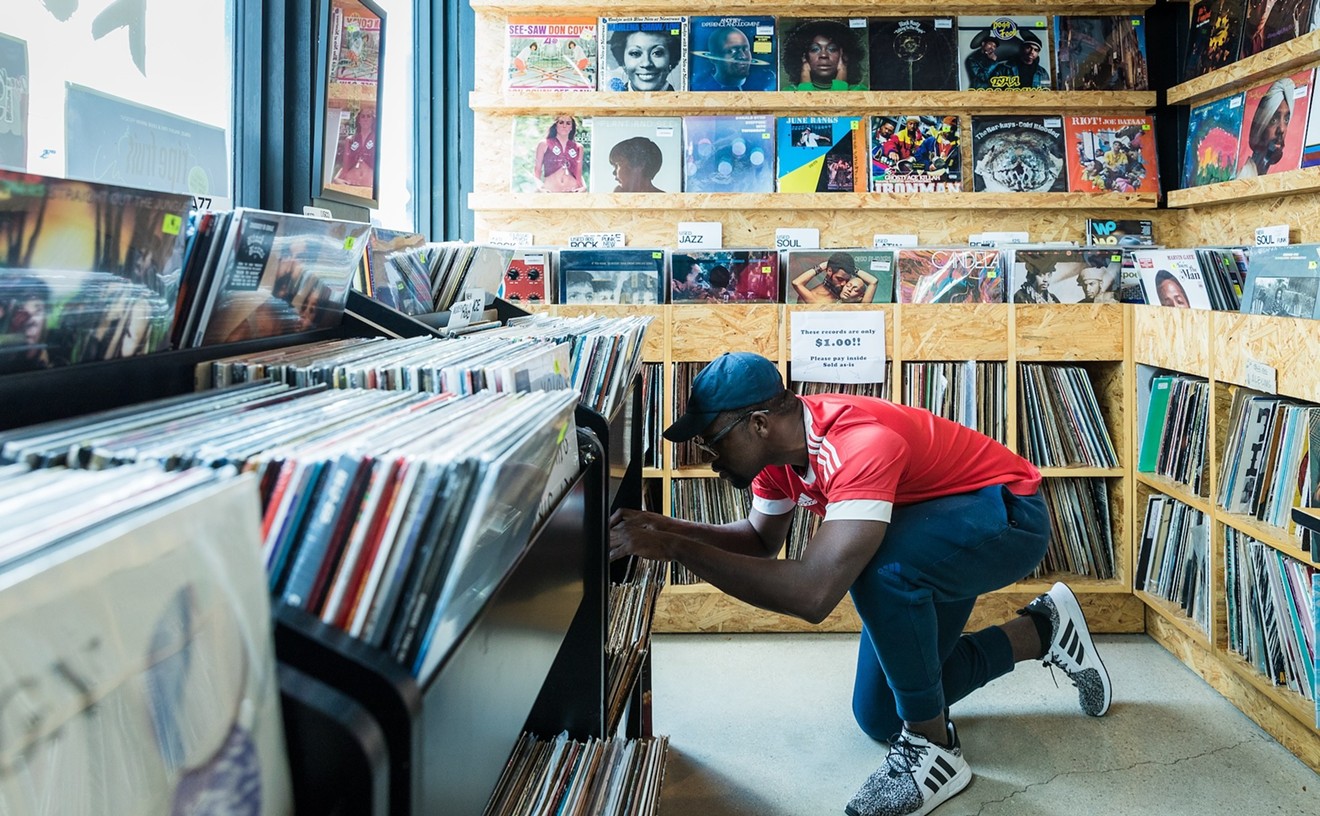One journalist's description of Sosa's contralto instrument as a "rare miracle of color and resonance with an imponderable mystery that makes multitudes tremble unto delirium" comes close. The hyperbole fits the voice that packs venues along her current tour, which brings her to Miami for an October 31 performance at Gusman Center for the Performing Arts. "It's strange that I fill the theaters," Sosa says. "People must think, Let's go see this crazy woman who doesn't even put out records." She's referring to her recent vinyl disappearing act, caused by contractual problems with Polygram. "I feel like Marcel Marceau. The only thing is that Marcel had no other path but mime. But I'm a singer. I need recordings." Sosa speaks from her hotel room in Frankfurt, Germany, having just arrived there from Vienna. At 56, she is tired. She's been singing for audiences since she was fifteen.
She hopes to be back in the studio by next year. "I love what I sing," she says, repeating the statement for emphasis. For years she's been singing Latin America a new song, a folk-based blend of prose laced with philosophy, poetry, politics. Some of the songs Sosa chooses to sing have become anthems that range from patriotic nostalgia to reflections on life, war, poverty, and freedom. "I focus on human rights, against injustice. I don't belong to a political party," she explains. "Every day there are more problems, like the recent surge in Nazism. Every day there is more war."
Because of her musical choices and the nature of Argentina's governing machine in the late Seventies, Sosa went into voluntary exile as she was harassed off the air and off the stage. Though not officially banned, the military once interrupted a concert, and future shows were postponed due to bomb threats. Those exile years, spent in France and Spain until she returned to her homeland in 1982, affected her artistically. "By ripping me out by my roots," she says, "it forced my repertoire to become more international."
Sosa's musical inclination lately has been to mix Latin pop, rock, ballads, and tangos with folklore. She performs songs by highly regarded Latin writers such as Violeta Parra, Chico Buarque, Silvio Rodriguez, Pablo Milanes, and Milton Nascimento. She also draws from a slew of Argentinian composers, including Eladia Blasquez, Atahualpa Yupanqui, Teresa Parodi, Maria Elena Walsh, and rockers Fito Paez and Charly Garcia. Her take on these selections isn't exactly rock or pop, but her cross-generational association with rockers has helped her cultivate a younger audience. Among her North American friends are the likes of Pete Seeger, Joan Baez, and the Amnesty International crew. Ideologically, she supports Sting and his Rain Forest Foundation.
Trends aside, Mercedes Sosa's scene is one in Spanish, not exactly the dominant language in many of her stomping grounds - Israel, France, Germany, Greece, Italy, Canada, Brazil, the U.S., and the U.K. She has recorded in other languages with international artists, cutting an album based on Federico Garcia Lorca's Blood Wedding in Greek with Maria Faranturi, Alfonsina y el Mar with Chava Alberstein in Hebrew, and various efforts in Portuguese with Beth Carvalho and Nascimento. But the bulk of her work is en espanol. Nonetheless her recent sold-out performances in Israel drew 6000 people. "When I go to Tel Aviv and the theater is full, it's very emotional for me," she says. "There are songs that transcend language. There is something in the air. I don't know. I think it's harmony, melody." It's the voice.
When Sosa lands in Miami for her Halloween concert, she'll be coming in from Madrid, where she keeps a summer home. She played in 1989 to a full house at Gusman, right here in the heart of political oversensitivity and intolerance. No problem. "It was beautiful," she recalls. "It was kind of like we won something. Every space that's won with peace is very interesting."
Sosa is untiring in her effort to give voice to peace and justice. "This is incorporated into my life," she explains. "Also incorporated is that I know that human beings can construct everything in liberty. There is no other path that exists that is not democracy. In no way can things be solved with weapons. After war things have been gained through conversations, with words. I think it's bad to talk of peace and not feel that peace." Is music a powerful enough force to effect true change on these levels? Sosa pauses to ponder that inevitable question. "I don't know."
But the voice is known.










